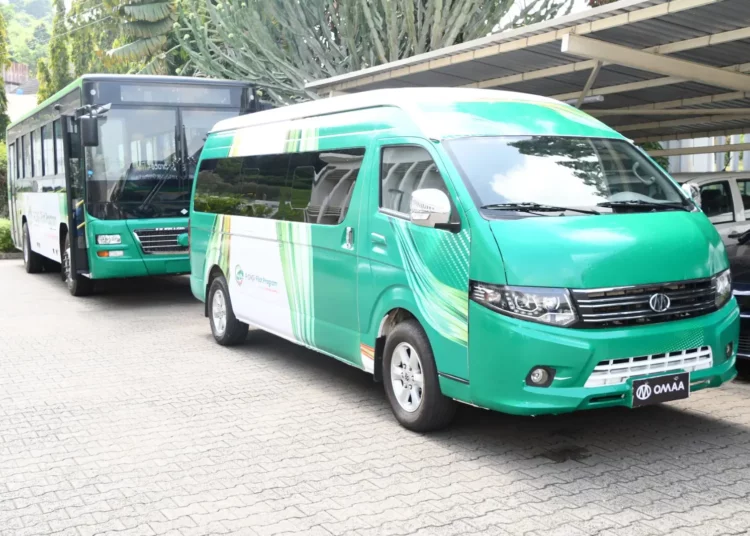The federal government has launched its conversion of vehicles from petrol to gas which it said is cheaper. It would reduce the petrol pressure and eventually bring the price down, reducing the cost of transportation, culminating in an affordable cost of living for the masses.
Speaking during the launch in Benin City over the weekend and the signing of agreements with partners that would make the project work, the head of commercial of Presidential CNG Initiative (Pi-CNG), Tosin Coker, said the same ceremony was simultaneously launched in five other states as part of President Bola Tinubu’s efforts to mitigate the sufferings posed by the continuous increase in the price of petrol.
He said the project targets one million vehicles across the country and that the conversion would be at no cost to the vehicle’s owner.
He said, “Mr President has directed that we incentivize all commercial vehicles in the country. We target to convert a million vehicles across the nation in partnership with the transport associations; they can come to Pi-CNG partners’ conversion centres and have their vehicles converted at no cost to them, including the conversion cost. This is a very laudable policy and initiative directive by the president. The idea is that as the government is making this available it will reduce the cost of petrol and transportation, and they can pass those savings on to the masses.”
Coker said that on conceptualisation about one year ago, President Tinubu set up a steering committee with three core mandates: incentivising the project, enabling the financing infrastructure, and regulating the new scheme.
He said that for the financing, some partners have put the funding in place to “make it available for corporate, for civil servants, for salary earners, for individuals and companies who want to invest in this initiative, revolution.”
To regulate it, Coker said there is the Nigerian Gas Vehicle Monitoring System, which he said was the product of collaboration between the Pi-CNG and the Nigerian Automobile Development and Design Council (NADDC), the Standard Organisation of Nigeria (SON), the Federal Roads Safety Commission (FRSC) and National Midstream and Downstream Petroleum Regulatory Authority (NMDPRA).
Part of the regulation, he said, is to ensure that “All vehicles that are powered by gas, all organizations that deal with gas conversion centres, and all filling stations will be regulated. It is a safety and regulatory body, and to the extent that we are able to track every single conversion kit that has gone into any vehicle, we can track it so that there is visibility and take the incidences to zero.
“The idea is to have zero incidences in gas vehicle monitoring incidences, and perchance, if there is any incidence, we can track it everywhere it is. Any vehicle that comes to refill in gas will not be refilled without being checked, so if checked and your vehicle is compliant, you refill, but if you are not compliant, you are not allowed to refill, and if the gas station refills, there will be sanctions.
“Mr President has seen that as a nation, we are more of a gas-producing nation before being an oil-producing nation. We have far more gas reserves than we even know, and unfortunately, for many decades, we have been flaring, making us the second largest waster of this product behind Russia.”
Coker called for collaboration and support from state governments and other stakeholders like the Edo State government, which the Commissioner for Mining and Energy, Hon. Enaholo Ojiefoh, said, for over three years, started its initiative to use alternatives to petrol by its citizens.











